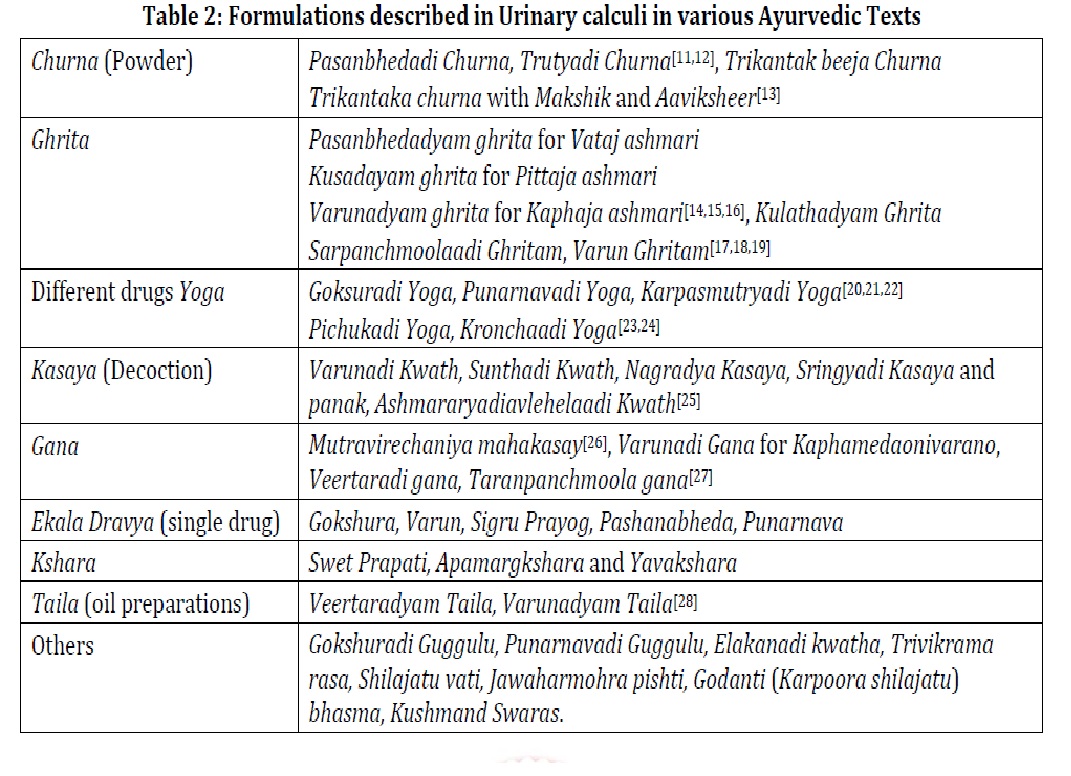Aetiopathological and Analytical Evaluation of Mutrashmari and its Management through Ayurveda
DOI:
https://doi.org/10.47070/ayushdhara.v9iSuppl1.1012Keywords:
Ayurveda, Mutrashmari, Ayurvedic drugs, Kashaya, urolithiasisAbstract
Mutrashmari is a common problem in primary care practice. In India, more than 1 million cases are reported per anum and another report said that the expectancy of 12% of the total population is prone. Mutrashmari can cause severe colicky radiating pain in the region of kidneys, abdomen, bladder, glans penis or perineum gives an important clue to the presence of urinary calculi with foul smell, nausea and sometimes hematuria also. Many treatments of modern medical science are present but they are costly and the reoccurrence of the formation of stone cannot be prevented. Introduction: Mutra means Urine and Ashmari means a structure resembling stone. In Ayurveda due to causative factors like imbalance Ahara, Vihara (unwholesome diet and living habits) & aggravated Kapha dosha reaches the urinary system and dries up to form the calculus. There are many factors responsible for Mutrashmari formation i.e., due to bad lifestyle, sleeplessness, odd diets, heavy consumption of fast food, preserved foods etc. Aim: To study the etiopathogenesis of Mutrashmari and its Ayurvedic management. Objectives: To find out the causative factors behind this high prevalence and also to find out the cheap, easily available Ayurvedic modalities to treat and prevent the Mutaashmari. Data Source: Charak Samhita, Sushruta Samhita, Ashtanga Hridaya, modern medical textbooks, journals and online databases. Results & Conclusion: Ayurveda has a broad spectrum of modalities of Mutrashmari by which not only cures the disease but can also prevent it through various types of treatments as- Nidanprivarjana Sanshodhan, Sanshaman, and Sastra Karma. Conclusion: The study concludes that we can reduce and manage this rising problem of Mutrashmari through modifying lifestyle, purification therapy and medication.
Downloads

Downloads
Published
Issue
Section
License
Copyright (c) 2022 AYUSHDHARA

This work is licensed under a Creative Commons Attribution-NonCommercial-ShareAlike 4.0 International License.


